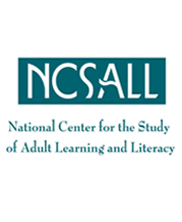On February 14 and 15, 2000, a National Adult Literacy Summit held in Washington, D.C., was attended by over 100 representatives from the field of adult literacy and adult basic education: learners, teachers, program directors, policymakers, researchers, state- and federal-level administrators, as well as congressional, corporate and non-profit friends of the field. The purpose of the Summit was to continue the process of developing a broad vision and a set of action steps for moving the field of adult literacy forward in its efforts to provide high-quality, accessible adult learning services to all adults in the U.S.
During the Summit, participants spent a full day reviewing a draft vision statement and priority statements and providing feedback for improving a proposed action agenda. At the end of the Summit, all participants were encouraged to find a way to draw more members of the field into the discussion, so that as many stakeholders as possible would have an opportunity to influence the agenda. Between February and June 30, participants were encouraged to sponsor opportunities for practitioners in the field to meet and provide feedback on the draft action agenda. Between June 30 and September 7, 2000, when the action agenda was formally introduced, the Summit organizers (who include the National Institute for Literacy, the Department of Education, the National Center for Adult Learning and Literacy, the National Coalition for Literacy, and others) worked to incorporate all of the feedback from practitioners around the country into the final action agenda.
NCSALL, as a co-sponsor of the Summit, felt that it should do its part by bringing together groups of teachers to read the action agenda, engage in a discussion together about it, and provide their own recommendations about the vision and the action steps needed for the field. Focus groups were organized in five of the states where NCSALL sponsors the Practitioner Dissemination and Research Network, a network of adult literacy practitioners who help make the connection in their states between practitioners and NCSALL’s researchers. (A further description of the Practitioner Dissemination and Research Network (PDRN) is included in the Appendix.)
In each of the five states, the PDRN Practitioner Leader conducted a three-hour focus group, using a common format developed by the PDRN. This format gave teachers the opportunity to talk about the vision statement proposed in the Draft Action Agenda and the eight priority action steps being recommended. The results from each focus group (in the form of newsprints used to record the discussions during the focus groups) were collated, transcribed, and analyzed to find common recommendations for improving the Action Agenda.
What follows is a brief description of the focus group methodology, a summary of findings of the five focus groups (common recommendations emerging from them), and conclusions for the Summit organizers to consider in implementing the Action Agenda. An appendix provides more information about how the focus groups were advertised and conducted, as well as specific comments made by teachers during each of the focus groups.
It is our hope that the perspectives and recommendations of these 29 adult literacy teachers will contribute to the evolution of the vision and agenda for the field.


